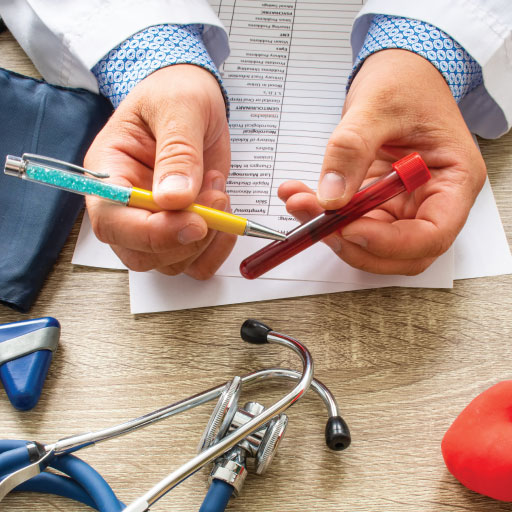
Getting tired too quickly and often can be a sign of anaemia. It is a blood disorder where the body gets deficient in healthy red blood cells. These cells comprise a protein called haemoglobin that carries oxygen to all parts of your body. When the body does not get enough oxygen you can feel tired all the time and also have issues like headaches and shortness of breath.
Anaemia is a very common disorder among people of all ages and might go on undetected if it is not severe. The two highly prevalent types of anaemia include the ones caused by folate and iron deficiency.
Folate Deficiency Anaemia:
Folate is one of the B vitamins, and you can be anaemic if you do not consume plenty of foods rich in vitamin B or if your body cannot absorb the vitamin properly. This could occur if your small intestine is not working properly and you are showing signs of stomach problems, or if you consume alcohol often.
लक्षण:
Apart from persistent fatigue, having pale skin and grey hair are the indicators of anaemia. Irritability, mouth sores and swelling in the tongue are signs that you need to get treated as soon as possible.
Iron Deficiency Anaemia:
When your body is deficient in mineral iron it cannot make enough haemoglobin, which can make you anaemic. This condition also occurs if you are not taking a diet rich in iron or if you are losing too much of it. Iron is also lost when women lose blood during menstruation or when blood loss happens due to internal bleeding.
लक्षण:
Apart from all the symptoms that one can experience during folate deficiency anaemia if your body lacks mineral iron, you can get cold hands and feet. You can also develop brittle nails, dizziness and cravings for dirt or clay.
With These Dietary Changes And Simple Precautions, You Can Avoid Being Anaemic And Also Help Your Loved Ones Be Healthy:
- To avoid folate deficiency, load up on foods like green leafy vegetables, peas, tomatoes, bananas and citreous fruits. If you consume non-veg food, adding liver meat, shellfish and eggs to your diet can be beneficial.
- Eat green vegetables, pumpkin/squash seeds, all types of dried fruits and nuts to fill up on mineral iron. Non-vegetarians can add ample amounts of meat like lamb, pork, chicken and beef to their diet.
- Avoid drinking too much caffeine or alcohol as these substances prevent your body from absorbing nutrients properly.
- Take mineral and vitamin supplements with your meals if you require them, or if a doctor prescribes them.
- Go for regular health check-ups and take the prescribed medicines on time.
Consume a balanced diet to load up on all the healthy nutrients to keep yourself and your family healthy.





 1800-270-7000
1800-270-7000








You are sharing the best health blog